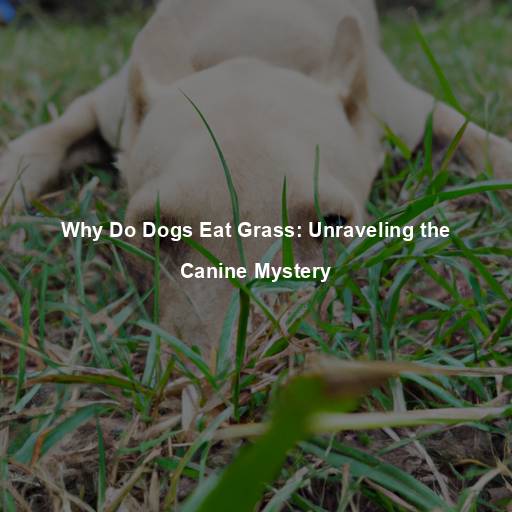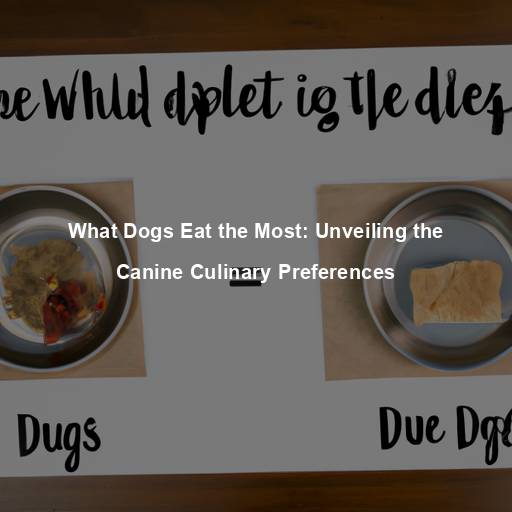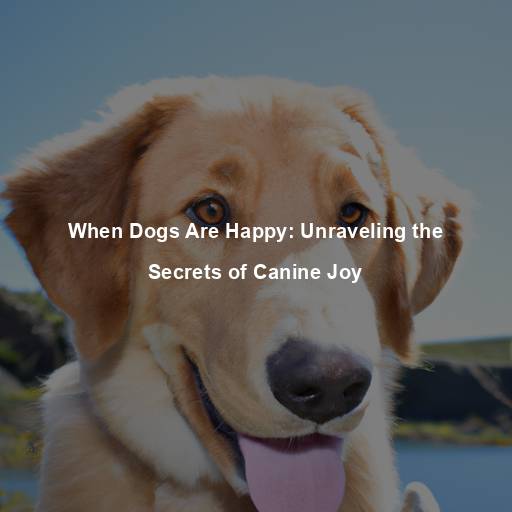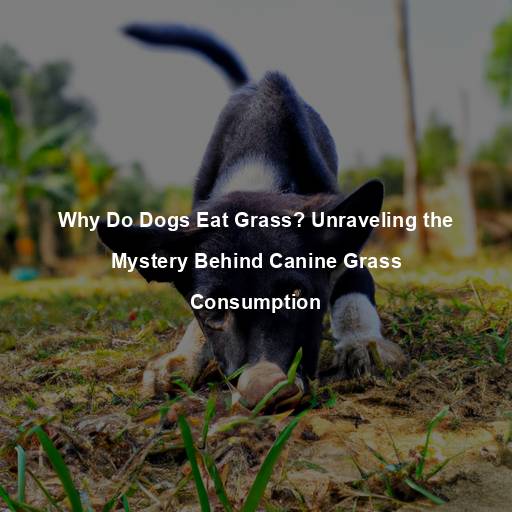Why Do Dogs Eat Grass: Unraveling the Canine Mystery
Last Updated on November 8, 2023 by Evan
Contents
The Curious Behavior of Dogs
When it comes to our beloved furry companions, dogs, their behaviors never cease to amaze us. One of the many enigmatic habits they have is their inclination to devour grass. Picture this: our four-legged friends frolicking through meadows, chomping on blades of greenery. But the question remains: why do they do it?
Instinctual Behavior
It’s fascinating to think about how our furry companions, dogs, continue to exhibit traces of their ancient lineage as descendants of wolves. A captivating theory revolves around their penchant for consuming grass, dating back to their wild relatives’ dietary habits. In the untamed world, wolves would feast upon the stomach contents of their prey, an assortment that often encompassed lush plants and grass. Experts speculate that this intriguing behavior aids digestion and facilitates the expulsion of any undigested residue.
Nutritional Deficiency
Another possible explanation for dogs eating grass is a nutritional deficiency. While dogs are primarily carnivores, they sometimes crave certain nutrients found in plant matter. Grass contains essential vitamins, minerals, and fiber that may be lacking in their regular diet. By consuming grass, dogs may be attempting to supplement their nutritional needs.
Natural Laxative
We’ve all been there – watching our beloved furry companions struggle with tummy troubles and wondering what on earth could be causing their discomfort. It’s not uncommon for dogs to experience bouts of constipation or an upset stomach, just like us humans do. It’s no surprise then that they sometimes resort to grass as a natural remedy for their digestive woes. The grass’s unique texture can act as a gentle laxative, coaxing those stubborn bowel movements and offering some much-needed relief.
Behavioral Enrichment
Dogs, those fascinating and intricate beings, seem to possess a remarkable intellect and a deep desire for mental nourishment. Surprisingly, their affinity for devouring grass may indicate an unconventional way of seeking enrichment. Engaging in the mesmerizing ritual of sniffing, exploring, and devouring various textures and scents bestows upon dogs an extraordinary sense of fulfillment and captivation. By indulging in this peculiar behavior, dogs are likely tapping into their primal instincts, forging a profound connection with the world around them, and satisfying their innate hunger for diverse sensations.
Boredom or Attention-Seeking
Just like humans, dogs can experience moments of boredom or seek attention from their owners. In some cases, eating grass may be a manifestation of these emotions. If a dog feels understimulated or neglected, they may resort to engaging in behaviors that grab their owner’s attention. By munching on grass, they may elicit a reaction from their human companions, thereby alleviating their boredom or fulfilling their craving for attention.
Taste and Texture
Believe it or not, some dogs simply enjoy the taste and texture of grass. Dogs have taste buds that are different from humans, allowing them to perceive flavors that we may find unappealing. For certain dogs, the taste of grass may be pleasant or intriguing, leading them to indulge in this verdant treat. Additionally, the texture of grass can provide a satisfying chew and mouthfeel for dogs, similar to how we may enjoy snacking on crunchy foods.
Medical Concerns
While occasional grass-eating behavior is generally considered harmless, there are instances where it may be indicative of an underlying medical issue. If your dog excessively eats grass, displays signs of distress, or vomits after consuming grass, it is crucial to seek veterinary advice. These symptoms could be a sign of gastrointestinal problems, dietary allergies, or even parasites. A thorough examination by a veterinarian will help identify and address any potential health concerns.
Individual Variations
Lastly, it is important to acknowledge that every dog is unique, and their motivations for eating grass may vary. What applies to one dog may not necessarily apply to another. Some dogs may simply have a stronger inclination towards grass-eating behavior due to their individual preferences or experiences. Understanding your dog’s behavior and monitoring their well-being is key to ensuring their overall health and happiness.
In conclusion, the act of dogs eating grass is a multi-faceted behavior that can be attributed to a combination of instinctual, nutritional, behavioral, and even individual factors. While it may seem perplexing at times, it is generally considered a common and harmless behavior. However, if you have concerns about your dog’s grass-eating habits or notice any unusual symptoms, it is always best to consult a veterinarian for professional advice. Remember, our furry friends rely on us to provide them with the love, care, and attention they deserve.
Training Techniques
Addressing unwanted behaviors in dogs requires effective training techniques. Grass-eating habits can be redirected by implementing positive reinforcement methods. By rewarding desired behaviors and refraining from eating grass, you can establish positive habits. It’s crucial to remain patient and consistent in your training approach, as behavior modification is a time-consuming process.
Creating a Safe Environment
As we take on the role of caring and conscientious guardians for our beloved furry companions, it becomes imperative to ensure a secure and stimulating setting. Should you find yourself questioning the grass consumption habits of your canine companion, why not explore alternative options? Establishing specific play zones or introducing pet-friendly turf, devoid of any detrimental substances, might offer a viable solution. In addition, offering abundant avenues for physical exertion, cognitive engagement, and interactive play could prove instrumental in mitigating ennui and curtailing undesirable grass munching.
When to Seek Veterinary Advice
Persistent or Excessive Grass-Eating
While occasional grass-eating is considered normal behavior for dogs, persistent or excessive grass consumption may warrant a trip to the veterinarian. If your dog constantly seeks out grass, shows signs of distress, or vomits after eating grass, it is essential to have them evaluated by a veterinary professional. These symptoms could indicate an underlying medical issue that requires prompt attention.
Changes in Behavior or Health
When your furry companion starts acting differently, losing interest in their food, or experiencing puzzling health issues, seeking professional guidance should be at the top of your to-do list. It’s important to remember that a seemingly harmless behavior like munching on grass can sometimes hint at more profound medical troubles like tummy troubles, allergies, or unwelcome parasites. Consulting with a knowledgeable veterinarian and letting them conduct a comprehensive evaluation will offer valuable insights and allow for appropriate interventions to address any underlying health perplexities.
Preventive Care and Regular Check-ups
Looking out for your furry friend’s welfare entails regular trips to the vet, which play a crucial role in their overall happiness. These check-ups allow the veterinarian to gauge your dog’s well-being, tackle any worries you may have, and offer valuable insights on diet and habits. Embracing preventive measures like vaccinations, parasite control, and dental care ensures your precious pooch stays in tip-top shape and minimizes the perplexing tendency to nibble on grass, often a signal of underlying health concerns.
Tips for Pet Owners
Provide a Balanced Diet
Feeding your dog a nutritionally balanced diet is essential for their overall health and well-being. Consult with your veterinarian to ensure your dog’s diet meets their specific nutritional needs. A quality dog food brand that provides the necessary vitamins, minerals, and nutrients will help minimize any potential deficiencies that may lead to grass consumption.
Offer Alternative Chewing Options
If your furry companion finds joy in the peculiar pastime of nibbling on the luscious blades of grass, fret not! Fearlessly indulge their cravings for sensory satisfaction by presenting them with a smorgasbord of suitable substitutes. Explore a plethora of chew toys and dental delights that have been meticulously crafted to cater to the canine chewing conundrum. These marvelous marvels not only appease their insatiable urge to gnaw, but also contribute to impeccable dental hygiene and safeguard against the treacherous consumption of perilous elements.
Environmental Enrichment
Ensure your dog has plenty of mental and physical stimulation in their daily routine. Regular exercise, interactive play sessions, and puzzle toys can help keep their minds engaged and curb boredom-related behaviors, including excessive grass-eating. Engaging with your dog through training, obedience exercises, and interactive games can also strengthen the bond between you and your furry friend.
Regular Veterinary Check-ups
Taking care of your furry friend’s health is no ordinary task. Making sure your dog gets routine veterinary check-ups is an absolute must. These check-ups help spot any hidden health concerns that might be causing those mysterious grass-eating habits. Beyond that, your trusted veterinarian will provide valuable advice on diet, behavior, and any necessary interventions to keep your four-legged companion in tip-top shape.
Create a Safe Outdoor Space
If you have concerns about the grass your dog has access to, consider creating a safe outdoor space for them. Use pet-friendly turf or designated play areas that are free from potential hazards, such as pesticides or toxic plants. Supervise your dog during outdoor activities to prevent them from consuming harmful substances or engaging in excessive grass-eating.
The Fascinating World of Canine Behavior
Dogs are always full of surprises – from their boundless zest for life to their inexplicable grass-eating habits. While the exact reason behind this peculiar behavior remains a mystery, it’s worth delving into different theories to gain a better understanding of our furry pals. As conscientious pet owners, it’s crucial that we create a nurturing environment that prioritizes their wellness, employing effective training methods and seeking professional advice when necessary. So, the next time you catch your four-legged friend munching on grass, marvel at their idiosyncrasies, relish their companionship, and never stop exploring the enigmatic world of canine behavior.
FAQs – Why do dogs eat grass?
Why do dogs eat grass?
The enigmatic phenomenon of dogs munching on grass has baffled pet owners for ages. One theory suggests that this peculiar behavior stems from a primal instinct to acquire essential nutrients and fiber that may be lacking in their everyday diet. Another perplexing possibility is that they resort to grass as a means to induce vomiting when their delicate stomachs are upset or to alleviate discomfort caused by a foreign object. Nonetheless, it is crucial to seek professional guidance from a veterinarian if your beloved canine persistently exhibits this enigmatic predilection, as it may signal an underlying medical concern.
Is it normal for my dog to eat grass?
Yes, it is quite normal for dogs to eat grass occasionally. Many dogs, regardless of their diet or age, exhibit this behavior from time to time. It can be a harmless and innate instinct for them to explore and taste various natural materials found in their environment. However, if your dog excessively eats grass or shows signs of distress after consumption, it is recommended to seek professional advice to rule out any potential health concerns.
Can eating grass be harmful to my dog?
When it comes to our furry friends and their grassy cravings, it’s important to approach the topic with caution. While most of the time munching on grass is harmless, there are a myriad of factors to keep in mind. The use of fertilizers, pesticides, and herbicides can pose a grave threat to our beloved canines, making it imperative to steer clear of such treated areas. Moreover, it’s essential to be wary of wild plants and weeds that may be lurking, as they too can be toxic to our four-legged pals. If you notice your pooch indulging in excessive grass consumption, accompanied by unsettling symptoms like vomiting or odd behaviors, don’t hesitate to seek professional advice from a trusted veterinarian.
Should I try to stop my dog from eating grass?
When it comes to Fido’s penchant for grass, many pet owners find themselves scratching their heads. Is it a harmless pastime or a potential cause for concern? While the act itself is generally unproblematic, it’s always advisable to keep a watchful eye on your pup during their outdoor escapades. If you harbor any qualms about their grass munching, gently redirect their attention to more suitable chew toys or playful diversions. As a responsible pet owner, consulting a trusted veterinarian is the key to uncovering any mysterious behavior or health issues that may stem from this curious habit.
Are there alternatives to grass for satisfying my dog’s need to chew?
When it comes to meeting your dog’s insatiable craving to chomp, fret not, for the world of chewables offers an array of enticing alternatives. From sturdy bones to engaging rubber toys, you can redirect their gnawing tendencies and keep them thoroughly captivated. These chew-friendly options not only appease their primal urge to munch but also promote oral hygiene and successfully deter any pesky, furniture-munching habits. So, set your worries aside, and let the delightful journey of canine chewiness begin!
Is eating grass a sign that my dog is unwell?
It’s not always a cause for alarm. Chowing down on grass can be a quirky habit for dogs, but it’s not necessarily a red flag for a serious illness. However, it’s important to keep an eye out for other concerning signs like fatigue, lack of appetite, throwing up, runny stools, or unusual changes in behavior. If these symptoms pop up, it’s best to reach out to a vet for a thorough check-up to ensure your furry friend’s well-being.







